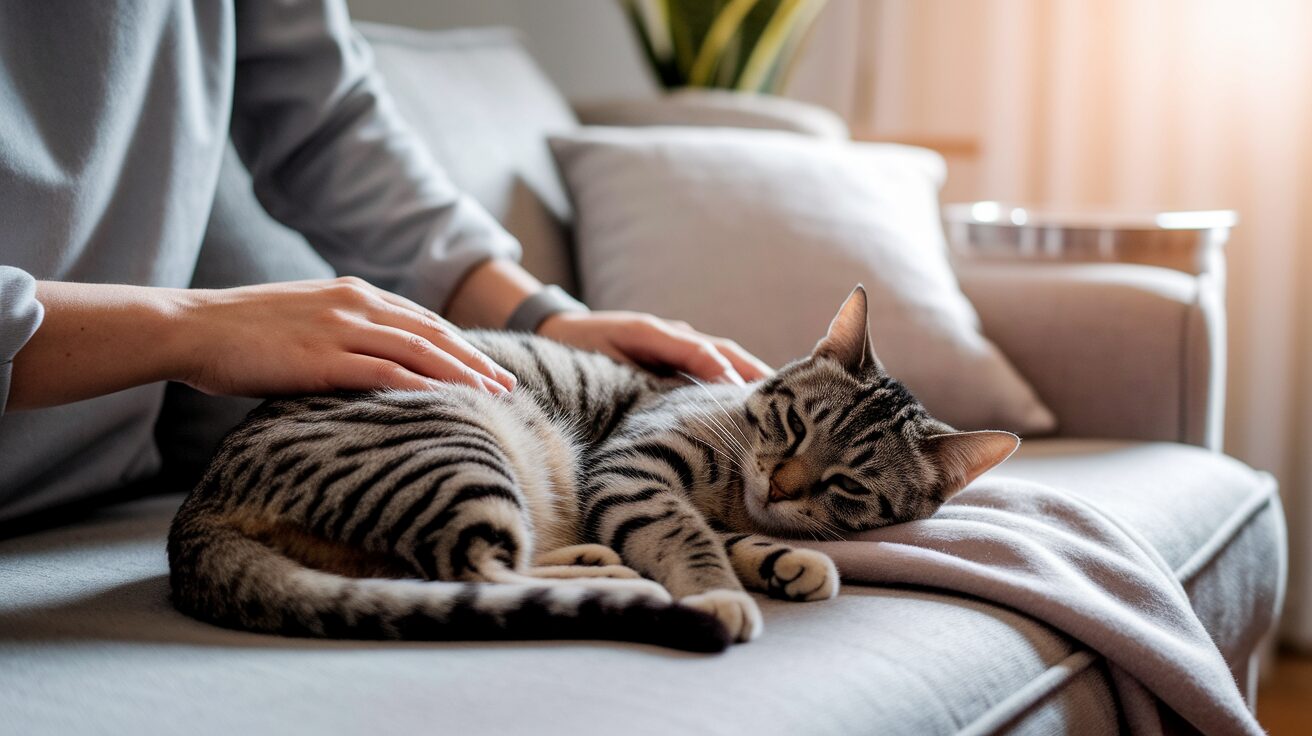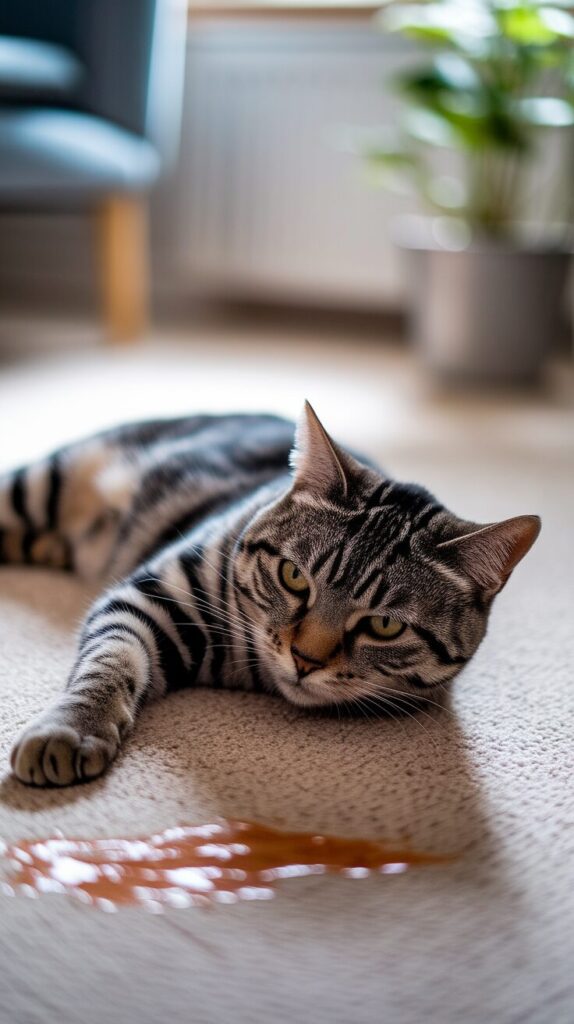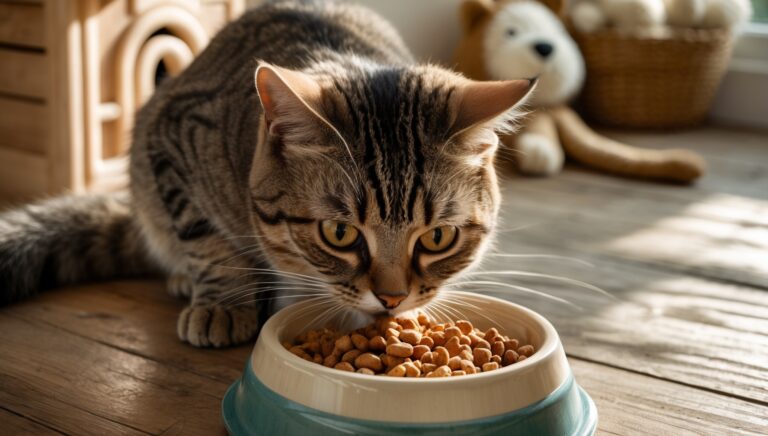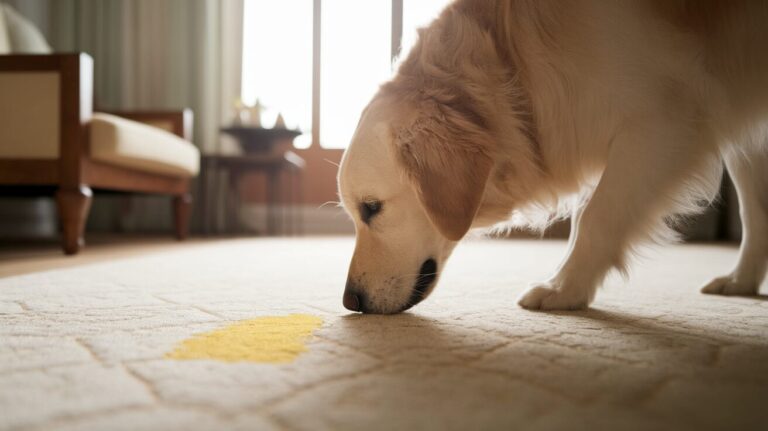Cat Vomiting Colors Decoded: The Ultimate Guide to What They Mean & When to Worry
If you’re anything like me, your cat is more than just a pet—they’re part of the family. So when they throw up, especially with weird colors involved, it’s only natural to worry a little (or a lot). Let’s face it: vomit isn’t the prettiest topic, but understanding what it means could save you a lot of stress—and possibly a vet visit.
In this guide, I’m breaking down the different cat vomit colors, what they could mean, and when it’s time to call the vet. We’ll also talk about what you can do at home and how to help your kitty feel better faster.
Why Cats Vomit: Common Causes
First, let’s talk about why cats throw up in the first place. It’s more common than you might think, and sometimes it’s not even a big deal.
Here are a few usual suspects:
- Hairballs from grooming
- Eating too quickly
- Sudden food changes
- Mild digestive upset
- Food intolerance or allergies
- Chewing on plants or non-food items
- Motion sickness
- Medical conditions (like kidney disease or hyperthyroidism)
A one-time puke isn’t usually cause for panic. But if your cat’s vomiting becomes frequent—or the color looks off—it’s time to pay closer attention.
What Cat Vomit Colors Can Tell You
Okay, let’s get into the nitty-gritty. Here’s what different vomit colors might mean, based on both vet advice and personal experience.
1. Clear or White Foam
Seen your cat spit up clear liquid or white foam?
This often happens when their stomach is empty. Maybe they skipped a meal, or they’ve gone too long without food. It might also happen in the morning before breakfast.
What to watch for:
- Happens occasionally? Probably nothing to worry about.
- Happens often? Check with your vet—it could be acid reflux or gastritis.
2. Yellow or Green Vomit
This means bile is in the mix. Bile is a digestive fluid made by the liver.
Why this happens:
- Your cat hasn’t eaten for a while.
- They might have an irritated stomach or gallbladder issue.
- In some cases, it points to liver or pancreatic problems.
My tip: Feed small meals more often to avoid bile buildup.
Call the vet if: The vomiting is frequent, or your cat is acting tired or not eating.
3. Red or Bloody Vomit
Red streaks or pink-tinted liquid = fresh blood. It can look scary, and yeah—it kind of is.
Possible reasons:
- Scratches or ulcers in the mouth or esophagus
- Swallowed something sharp
- Infections or inflammation
If you see blood, call the vet right away. Better safe than sorry.
4. Brown or Coffee Ground Vomit
This one’s a big red flag.
Brown vomit, especially if it looks like coffee grounds, can mean digested blood. That’s usually a sign of bleeding deeper in the digestive tract.
It could point to:
- Stomach ulcers
- Intestinal bleeding
- Liver or kidney disease
Urgency level: High. Get your kitty to the vet.
5. Green Vomit
Sometimes it’s bile. Sometimes it’s because your cat munched on grass or a houseplant.
Not always serious, but keep an eye out for:
- Ongoing vomiting
- Lethargy
- Suspected plant toxicity
Pro tip: Make sure your houseplants are pet-safe.
6. Foul-Smelling Brown Vomit
This one’s rough. Brown, smelly vomit often means partially digested food—or something your cat shouldn’t have eaten (like trash).
It could also signal:
- GI tract issues
- Internal bleeding
Watch for: repeated vomiting, bloating, or signs of discomfort.
When Should You Worry?
Let’s make this simple. Here are clear signs you shouldn’t ignore:
- Vomiting more than once a day
- Blood (red or dark) in vomit
- Lethargy or hiding behavior
- Not eating or drinking
- Noticeable weight loss
- Diarrhea alongside vomiting
- Swollen belly or pain
Trust your gut. If your cat just doesn’t seem like themselves, give your vet a call.
What To Do When Your Cat Vomits
So your cat just threw up—now what?
Here’s what I usually do:
- Clean it up (gross but necessary) and look closely—what color is it? Any hair, food, or weird objects?
- Don’t feed them immediately. Let their stomach rest for 4–6 hours. Keep fresh water available.
- After the break, offer a small meal of bland food (like plain boiled chicken).
- Watch for repeat symptoms over the next 24 hours.
If they vomit again, or if anything seems “off,” get in touch with your vet.
How to Help Prevent Vomiting
You can’t prevent every hairball or stomach issue, but you can make things easier on your cat (and yourself):
- Brush them regularly to cut down on hairballs
- Use slow-feeder bowls if they eat too fast
- Stick to a consistent diet (no sudden food switches)
- Keep non-food items and toxic plants out of reach
- Feed small, frequent meals
- Schedule regular vet checkups
Trust me, a few simple habits can make a big difference.
Cat Vomit Color Chart (Quick Reference)
| Vomit Color | What It Might Mean | Urgency |
| Clear/White Foam | Empty stomach, acid buildup | Low |
| Yellow/Green | Bile, liver or digestive issues | Medium |
| Red/Bloody | GI injury, ulcers | High |
| Brown/Coffee Grounds | Digested blood, serious GI issue | High |
| Green | Grass or plant ingestion | Medium |
Note: Always consult your vet if you’re unsure or symptoms worsen.
Your Burning Questions—Answered!
What does yellow cat vomit mean? It usually means your cat is throwing up bile. Sometimes it’s from an empty stomach, other times it could signal a deeper issue. Keep an eye on it.
Should I be worried about green vomit? It could be from grass or something harmless—but if it happens often, it could mean bile or intestinal trouble. Better to check with your vet.
Are hairballs dangerous? Not usually. But if your cat is vomiting a lot or having trouble passing hairballs, it’s time for a vet visit.
When is vomiting an emergency? If there’s blood, vomiting won’t stop, or your cat seems sick or in pain—don’t wait. Call your vet.
Final Thoughts
Vomiting is no fun—for you or your cat. But knowing what the colors mean can give you peace of mind and help you catch issues early.
I always say: You know your cat best. If something feels wrong, don’t brush it off. Your vet is there to help, and it’s always better to ask than to guess.
📌 Pin this post so you’re prepared if your cat ever has a not-so-cute moment on your carpet!








